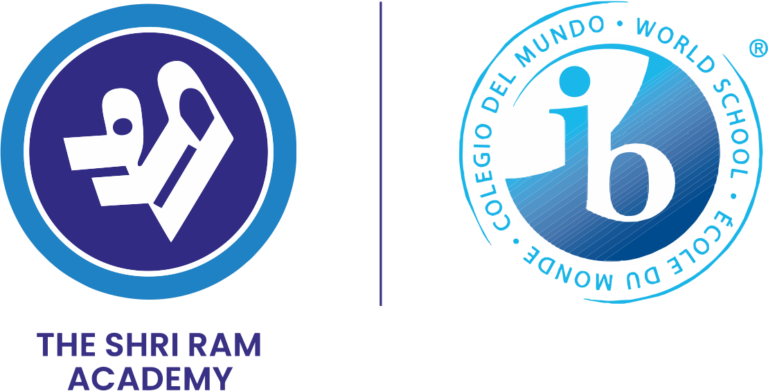
What Is IB Board? Pros and Cons of Studying in an IB School?
What Is IB Board? Pros and Cons of Studying in an IB School?
Choosing your child’s school is a major decision, especially in a city like Hyderabad, where options are plentiful. Should you follow the CBSE or ICSE curriculum, or consider international boards like the IB?
If you are wondering what is IB board and whether it is right for your family, you’re in the right place. Let’s explore the world of IB, its unique features, and the IB board pros and cons that matter for parents today.
Understanding the IB Board
The International Baccalaureate (IB) was founded in Geneva, Switzerland, in 1968. Today, it’s offered in over 5,500 schools across 160+ countries, including more than 200 schools in India. The IB’s core philosophy is straightforward: learning should spark curiosity, encourage inquiry, and foster critical thinking. It’s about holistic growth- nurturing not just academic skills, but also values, creativity, and global awareness. The IB offers four programmes:
IB offers a continuum of programmes: the Primary Years Programme (PYP), the Middle Years Programme (MYP), and the Diploma Programme (DP). The curriculum covers languages, sciences, mathematics, arts, and humanities, with a unique structure of higher-level and standard-level subjects. This gives children flexibility and prepares them for international universities. Parents who dream of their children studying abroad often look at IB because universities value the critical thinking, creativity, and research skills it develops.
- Primary Years Programme (PYP): For ages 3–12, focusing on inquiry and foundational skills.
- Middle Years Programme (MYP): For ages 11–16, blending academics with real-world connections.
- Diploma Programme (DP): For ages 16–19, a rigorous pre-university course.
- Career-related Programme (CP): For students aiming for career-specific skills.
How IB Differs from Indian Boards
Let’s break it down simply:
- Learning Approach: In the IB, students ask questions, lead discussions, and delve deeper. CBSE and ICSE are more about following a set textbook and teacher instructions.
- Assessment: IB students are evaluated through a combination of projects, essays, and presentations. Traditional boards focus mainly on written exams and memorization.
- Curriculum: The IB curriculum incorporates global themes and fosters understanding across cultures. Indian boards stick to a national syllabus.
- Teacher-Student Bond: Teachers in IB are mentors and guides. In other boards, they are more like instructors.
IB vs Indian Boards – Key Differences
Criteria | IB Board | Indian Boards (CBSE/ICSE) |
|---|---|---|
Teaching Method | Inquiry-focused, student-driven | Syllabus-based, teacher-led |
Assessment Style | Projects, essays, presentations | Exams, rote-learning |
Curriculum Content | Global, interdisciplinary | National, subject-divided |
Recognition | Worldwide | National |
Languages Offered | Multiple | English/Hindi/regional |
Pros of IB School
- Accepted Worldwide: IB is recognised in over 160 countries and by top universities, which helps students who want to study abroad.
- Focus on All-Round Development: IB values academics, sports, arts, and service. Students get opportunities for real-life learning and community involvement.
- Builds Practical Skills: IB encourages critical thinking, research, teamwork, and communication, skills that matter everywhere.
- Strong Language Skills: Learning more than one language is a key component of the IB. This boosts confidence and helps in our multilingual society.
- Smooth University Transition: IB prepares students for university-style learning. Research, essays, and time management. This is a significant benefit, especially when comparing the IB board to IGCSE.
Cons of IB School
- Fees are typically higher than those for CBSE or ICSE.
- IB schools are primarily located in major cities.
- The workload can feel heavy for some students.
- Project-based learning may not be suitable for every child.
Parent Checklist: Is IB Right for Your Child?
Choosing IB is a big decision. Ask yourself:
- Is your child planning higher studies abroad?
- Does your child enjoy projects, debates, and research more than memorisation?
- Can your family support higher school fees?
- Are you based in or near a metro city with IB schools?
If you answered “yes” to most, IB could be a great fit.
Why The Shri Ram Academy Stands Out
At The Shri Ram Academy, we blend IB values with Indian culture, such as integrity, pride in heritage, and a focus on the environment. Our lush Gowlidoddy campus offers learning beyond books.
If you want your child to experience the benefits of an IB school, please visit us or reach out to us. We’re here to help you make the right choice for your child’s future.
Frequently Asked Questions (FAQs)
- What does IB stand for in education?
IB stands for International Baccalaureate, a globally recognised curriculum focused on inquiry, critical thinking, and holistic student growth from ages 3 to 19. - Is IB better than CBSE or ICSE?
IB provides a global perspective, project-based learning, and skill development, which gives students a strong edge. These are key benefits of IB schools. - Can IB students write Indian entrance exams?
Yes, IB students are eligible for Indian entrance exams. The IB Board is recognised by the Association of Indian Universities.
